Author: Zeng Lu; Julia Sun
In 2021, the new crown epidemic will continue to ravage the world, causing earth-shaking impacts on everyone's lives. With 10 days left until 2022, International Development Watch will review with you the far-reaching international development events of this year.
Total words4692About26minutes
1. The new crown erodes global poverty reduction and development achievements, highlighting new characteristics of international development

The COVID-19 pandemic has posed a huge challenge to global public health, and the supply of vaccines in developing countries has become the key. The epidemic has infected 274 million people worldwide and killed 5.34 million people. research shows,vaccinationIt can effectively reduce the infection rate and severe disease rate of the new crown. How developing countries get enough vaccines has become the key. Currently, about 40% of the world's 7.85 billion people are vaccinated, but this figure is only 3% in low-income countries. At present, multiple variants of the new coronavirus have emerged around the world, posing new challenges.
The epidemic has plunged the world into a severe recession andErosion Poverty Reductionand development results. In 2020, the epidemic will cause a slowdown in global economic growth of 4.5% and economic losses of nearly US$3 trillion. In 2021, the epidemic is expected to cause a 5.7% slowdown in global GDP growth. The epidemic has caused the global eradication of extreme poverty and the regression of human development. In 2020, 119 million to 124 million people around the world will fall into extreme poverty due to the epidemic. This is the first time since 1998 that the global population of extreme poverty has increased.
Bilateral agencies scale back aid,international financial institutionsIncrease aid. As aid-providing countries prioritize limited public resources for domestic anti-epidemic and economic recovery, some developed countries have scaled back their foreign aid. In 2020,bilateral aidTotal commitments were down 19% from the previous year. In 2021, the United Kingdom, Germany, the Netherlands and Norway will reduce their official development assistance, while France and Italy will pledge to increase their official development assistance budgets. At the same time, the scale of aid from international financial institutions will increase in 2020, with commitments and disbursements both higher than the same period in 2019.
Traditional development goals such as global public goods (global public goods) represented by the new crown epidemic and the eradication of extreme poverty have intensified competition for resources. In the past 15 years, the total amount of global official development assistance has remained basically stable. In recent years, a large amount of aid funds have flowed to global public goods such as the new crown epidemic and climate change, which has led to greater challenges in the United Nations Sustainable Development Goals (SDGs) such as the eradication of extreme poverty. financial pressure.
2. U.S. development assistance policy shifts and multilateralism returns
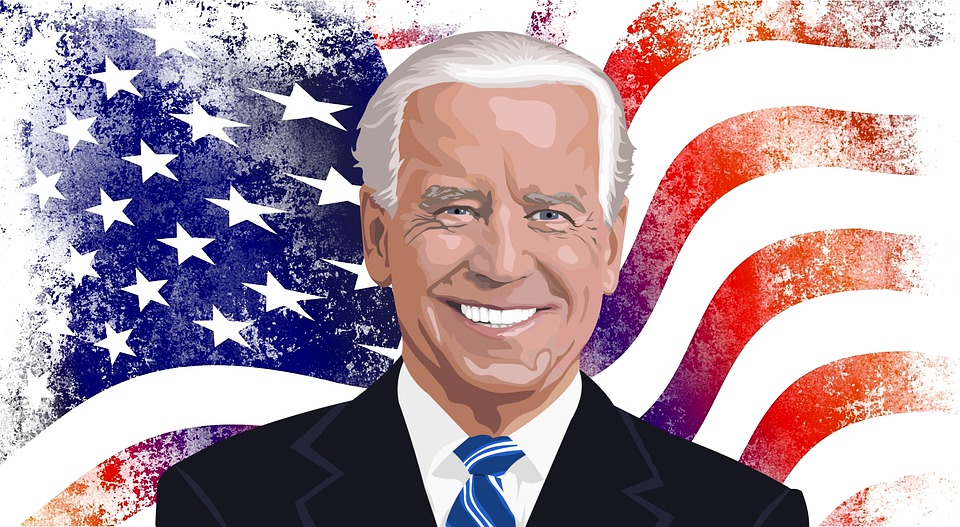
In January 2021, Joe Biden will be sworn in as President of the United States. The Biden administration changed the policy of giving priority to the United States and withdrawing from multilateral organizations during the Trump administration, and made development assistance a priority.core pillars of foreign policy.
The Biden administration sees climate change at the heart of its foreign policy. Biden restarted the process of US accession to the Paris Agreement. At the Glasgow climate conference, Biden reiterated that the United States will seek to become a net-zero emission economy no later than 2050. During the conference, China and the United States issued a joint statement, pledging to strengthen climate action and increase climate ambition in the next critical decade. Biden also plans to launch the President's Adaptation and Resilience Emergency Plan (REPARE) to help developing countries adapt to climate change. If approved by Congress, the program would provide $3 billion in annual funding through the end of fiscal year 2024.
Global health is a policy priority for the Biden administration's development assistance. Since Biden took office, the United States has provided developing countries with more than 1 billion doses of Pfizer vaccines and 200 million doses of domestic surplus vaccines. The Biden administration provided $3.5 billion for the Advance Market Procurement Commitment Mechanism (AMC) of the New Coronary Pneumonia Vaccine Implementation Program (COVAX) to support developing countries in fighting the epidemic and obtaining vaccines. In fiscal year 2020, the US government provided approximately US$480 million through the Global Health Security Agenda (GHSA) to support partner countries in improving public health security capabilities and infectious disease response and prevention capabilities. In addition, the United States launched the $400 million Global Vaccine Access Initiative (GVA) to support low- and middle-income countries in obtaining vaccines and promoting local production of vaccines.
Biden leads America back tomultilateralism. On the day of his inauguration, Biden returned to the "Paris Agreement", revoked his decision to withdraw from the WHO, and planned to rejoin the UN Human Rights Council next year. In addition, the Biden administration has increased its support for UN agencies and vertical funds, and used the status of the United States in multilateral organizations to influence international actions to address global challenges such as climate change, health, immigration, and debt issues.
3. Afghanistan faces humanitarian crisis, positive commitments from all sides
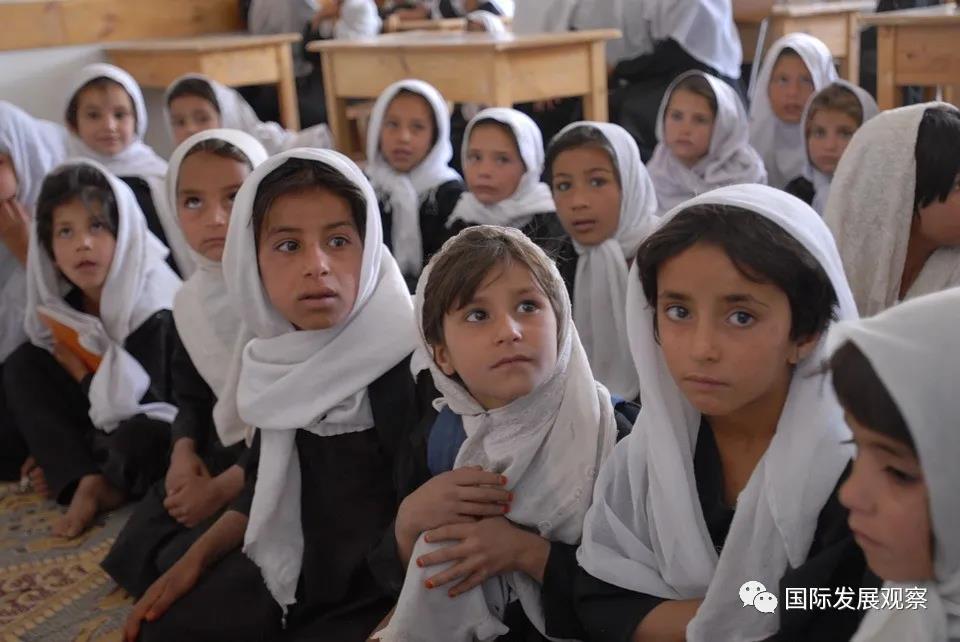
Afghanistan is in an economic crisis as many countries freeze aid. Afghanistan is one of the poorest countries in the world and is highly dependent on international aid. In 2019, grants from the United States and other countries accounted for 75% of the total expenditure of the Afghan government. In August 2021, the Taliban took over Afghanistan, but due to sanctions, they were unable to obtain about US$10 billion in assets kept by the former central bank in overseas institutions such as the Federal Reserve Bank of New York (FRBNY). In order to prevent the flow of funds to the Taliban, in August this year, Germany, the European Union, Finland, Sweden, etc.successively frozenEmergency and development assistance to Afghanistan. The International Monetary Fund also suspended about $455 million in new Special Drawing Rights (SDR) payments to Afghanistan.
Afghanistan is facing multiple humanitarian crises. More than half a million Afghans have fled their homes this year, making Afghanistan one of the world's largest sources of refugees, according to the United Nations refugee agency (UNHCR). The medical system is on the verge of collapse. Millions of people lack access to basic services such as vaccinations, malnourished children and pregnant women cannot receive treatment, medicines, medical supplies and fuel are running out, and medical personnel cannot be paid. The food crisis is also beginning to appear. The World Food Program (WFP) estimates that 40% of crops have been lost in Afghanistan this year, and 14 million Afghans are on the brink of starvation. According to UNICEF, nearly half of all children under the age of five will experience acute malnutrition in the next 12 months.
In September 2021, the United Nations held a humanitarian conference in Afghanistan and successfully raised US$1.2 billion. France, the United States and Norway pledged to donate US$118 million, US$64 million and US$11.5 million respectively for emergency food and other aid. In October, the European Union announced that it would provide about 1 billion euros to Afghanistan for humanitarian purposes, payment of salaries for teachers and nurses, and reconstruction. In December, the Afghanistan Reconstruction Trust Fund managed by the World Bank and supported by more than 30 countries approved the release of US$280 million for UN agencies in Afghanistan. The World Food Program and UNICEF will use the funds to provide food assistance to 2.7 million people, provide basic health services to 12.5 million people and vaccinate 1 million people.
Last Sunday, the Organization of Islamic Cooperation (OIC) launched a humanitarian trust fund in support of Afghanistan. China has pledged $31 million worth of food and medical supplies to Afghanistan, and will donate the first batch of 3 million sticksnew crown vaccine.
4. Britain's foreign aid budget cut by 30% has aroused concern
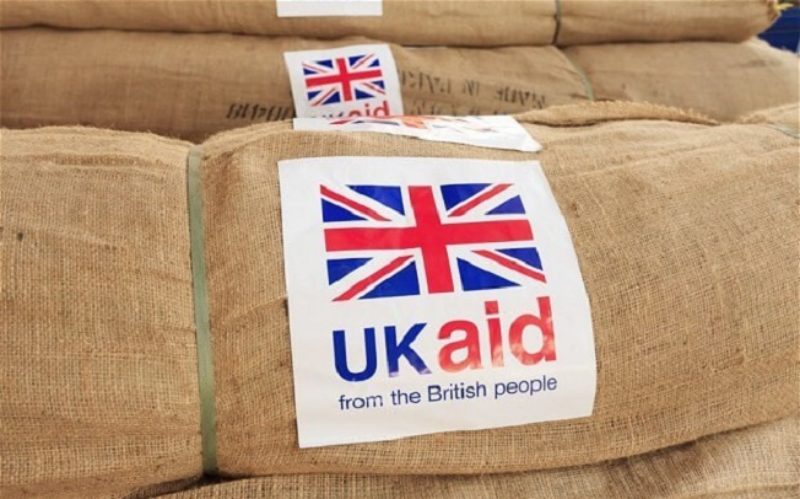
In July this year, the British Parliament approved the government to temporarily cut foreign aid spending from 0.7% of national income to 0.5% until certain conditions are met. This move will lead to an annual reduction of British foreign aid funds by 4 billion pounds (about 5.67 billion U.S. dollars).
british cutsaid budgetDisproportionately impacts the poorest countries. People in the world most in need of aid and humanitarian relief will thus be left in a more passive position. Nearly 11,000 rural Pakistani girls are at risk of being out of school if UK funding stops. In Yemen, which is suffering from a severe humanitarian disaster, British aid commitments have fallen from 139 million pounds (about 197 million U.S. dollars) in 2020 to 87.2 million pounds (about 123 million U.S. dollars) in 2021. The 321 million pounds (about 455 million U.S. dollars) of aid funds originally planned for Rohingya refugees in Bangladesh will also be reduced by 42%.
UK aid cuts cover areas such as climate and environment, health, humanitarian, trade, education and gender equality. Some international organizations lost important financial support. The United Nations Population Fund (UNFPA) may lose about 85% of family planning funding support, which is about 130 million pounds (about 178 million US dollars). The World Health Organization's global polio eradication project will lose about 95% of UK funding, down from £110 million ($156 million) last year to £5 million ($7.1 million) this year. In addition, UK funding to UNICEF and UNAIDS will also be reduced by around 60% and 80% respectively.
Some politicians in the UK believe that this move has dealt a major blow to the UK's international status and global leadership in the field of international development. The 50 Conservative MPs and all Opposition MPs expressed deep concern over the government's decision to cut the aid budget. Former Conservative Prime Minister Theresa May said the move would hurt the world's poorest country and damage Britain's international reputation.
5. UN chief calls for action in support of fragile states
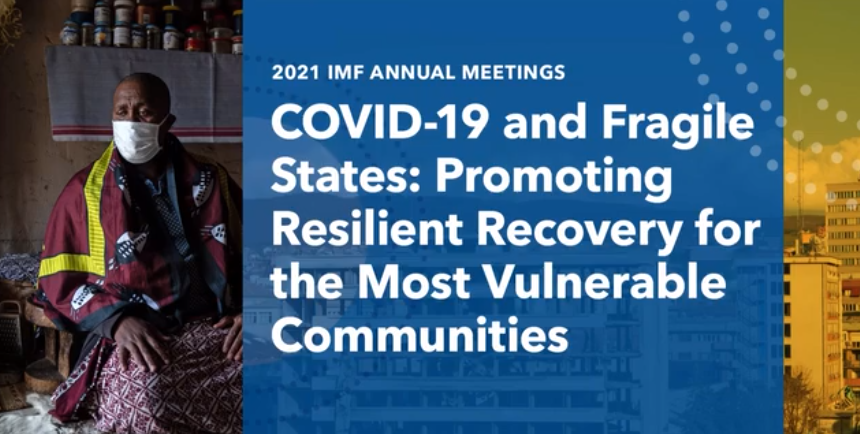
In October this year, UN Secretary-General Guterres said at the New Crown Epidemic and Fragile States: Supporting the Most Vulnerable Communities to Recover Resiliently Conference jointly hosted by the International Monetary Fund (IMF) and the World Bank (WBG), immediate action should be taken to support fragile state.
The world faces serious challenges such as the new crown epidemic, the climate crisis, and growing inequality and division. The epidemic has caused more than 100 million people to fall into poverty, and more than 4 billion people have almost no basic medical care and income security. The IMF forecast shows that the global economy has begun to recover, and the global economic growth in 2021 will be about 5.9%. However, the seemingly strong figures mask huge disparities, with many developing countries recovering far behind developed countries. Nearly 28% of GDP was spent on economic recovery in advanced economies, 6.5% in middle-income countries and just 1.8% in LDCs.
Guterres welcomed the IMF's strategy for fragile and conflict-affected countries, saying that the strategy is a key step in preventing and responding to risks related to the new crown epidemic and recovery, especially for fragile countries emerging from crisis and conflict.
Guterres called for support for fragile states on three fronts. Start by investing more in short-term crisis relief and longer-term recovery. The G20's debt service suspension initiative should be extended until 2022, support extended to middle-income countries, and a comprehensive strategy to reform the international debt framework developed. The second is to support governments affected by the crisis by investing heavily in universal social protection and retraining and upskilling programs by 2030. Finally, in order to achieve a breakthrough, the international community must “lead on the front line” towards a common goal by uniting closely in the humanitarian-development-peace nexus.
6. Glasgow climate agreement urges countries to tackle urgent challenge of climate change

On November 13, 2021, 197 countries signed the Glasgow Climate Pact at the 26th Conference of the Parties (COP26) of the United Nations Framework Convention on Climate Change.
Glasgow climate agreement stresses climate changeurgent challenge, and reaffirmed the goal of the Paris Agreement, which is to limit the average increase in global temperature to below 2°C above pre-industrial levels and strive to control it within 1.5°C. The agreement calls for unprecedented cuts in coal power and the phasing out of inefficient subsidies for fossil fuels; urges developed countries to urgently and fully implement their commitment to provide $100 billion in climate finance each year to help developing countries reduce carbon emissions and adapt to the impact of the climate crisis; and urges Countries propose new Nationally Determined Contributions (NDC) emissions targets by the end of 2022 to limit temperature rise to 1.5°C. The General Assembly also approved the implementation rules for the global carbon market of the Paris Agreement, making it possible for contracting parties to use the international carbon trading market to reduce emissions.
A number of other outcomes were also achieved during the conference.USAMore than 100 countries, including the European Union, have committed to reducing methane emissions by 2030. More than 40 countries, including Poland, Vietnam and Chile, have agreed to move away from coal. Nearly 500 financial institutions around the world have agreed to align the $130 trillion in assets under management (40% of the world's total financial assets) with the Paris Agreement's 1.5°C warming target. The United States and China issued a joint statement pledging to strengthen climate cooperation over the next decade and take steps on methane emissions, the transition to clean energy and decarbonization. In addition, more than 100 countries, cities, state governments and major car companies have signed the Glasgow Declaration on Zero Emissions from Cars and Vans, reaching a consensus on green transport initiatives such as stopping the sale of internal combustion engines in major markets and globally.
UN Secretary-General Guterres said at the end of the meeting: "The outcome of the Glasgow climate conference is a product of compromise, reflecting the interests, conflicts and political will of all parties in the world." "We must accelerate climate action to keep global warming going." target limited to 1.5°C."
7. The debt of developing countries has peaked, and the international community is actively responding, but the effect is limited

The new crown epidemic has exacerbated the debt risks of developing countries. The sovereign debt of developing countries had reached historical highs before the epidemic. The new crown epidemic has seriously affected public health and economic development, and has significantly increased public spending in developing countries. The increase in spending and the sharp drop in trade triggered by the epidemic, the reduction in immigrant remittances and the drop in commodity prices have led to a sharp reduction in government revenue and foreign exchange for debt service, further exacerbating debt risks. World Bank data show that in 2020, the debt burden of more than 70 low-income countries rose by 12% to a record level of US$860 billion. A United Nations study found that 72 developing countries around the world are facing debt risks, and the total sovereign debt of 19 countries with the most serious debt risks in 2021 will be as high as US$47 billion. World Bank President David Malpass said the pandemic had widened the gap between rich and lagging countries, setting back global development by years.
The international community has made active efforts to reduce the debt pressure of developing countries. The International Monetary Fund (IMF) provides emergency financing and debt relief to developing countries and allocates new Special Drawing Rights (SDRs). The IMF has approved emergency financing totaling $12 billion for 51 low-income countries and five tranches of debt relief totaling $964 million for nearly 80 of the poorest countries through the Catastrophe Containment and Relief Trust (CCRT). In August, the Board of Governors of the International Monetary Fund approved a new SDR allocation plan of US$650 billion, of which about US$275 billion flowed to emerging and developing countries, of which low-income countries received about US$21 billion. The IMF is also negotiating with rich countries to voluntarily transfer some of its newly allocated special drawing rights to developing countries. The G20 Debt Service Suspension Initiative for the Poorest Countries (DSSI) and the Common Framework provide relief to vulnerable countries. The Debt Suspension Initiative allows nearly 80 eligible low-income countries to suspend debt payments to official creditors. Some 43 countries received $5.7 billion in liquidity relief in 2020. In April, the Debt Suspension Initiative was extended until the end of the year. The G20 also proposed a common framework for subsequent debt handling under the Debt Suspension Initiative, which fully covers major creditor countries in developing countries and requires debtors to seek treatment not inferior to the common framework from other creditors, including private creditors.
Improving the liquidity and solvency of creditor countries cannot fundamentally solve the debt problems of developing countries. International organizations such as the United Nations have called for a comprehensive reform of the international debt system to establish a more just and effective long-term debt crisis resolution mechanism.
8. China's development and cooperation reforms continue to advance
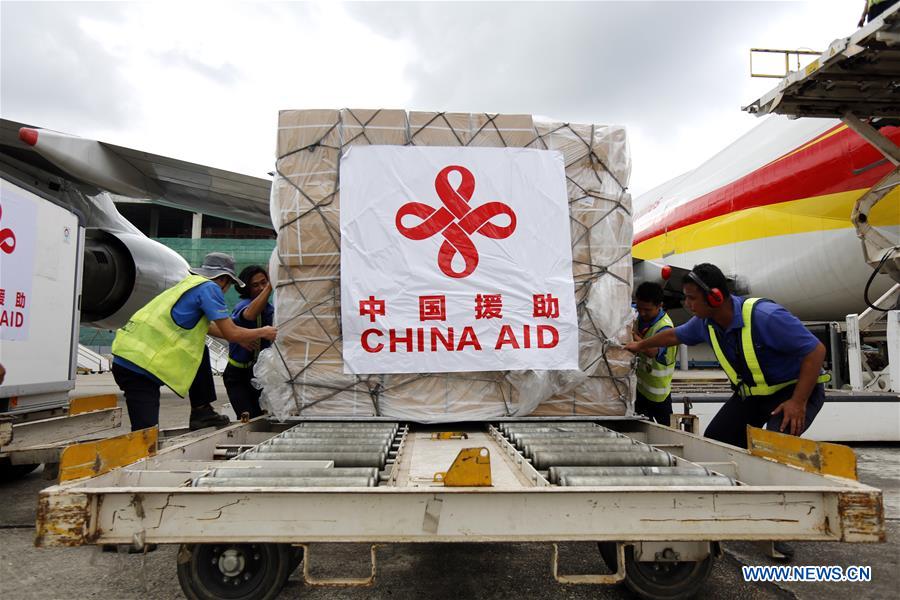
In recent years, China's foreign aid reform has made continuous progress. The establishment of the China International Development Cooperation Agency in 2018 marks a major breakthrough in the promotion of the overall layout of the country's diplomacy and the top-level design reform of development cooperation. In 2021, China will actively seek to improve the quality and management of foreign aid, and the reform of development cooperation will continue to advance.
On January 10, 2021, the State Council Information Office released "China's International Development Cooperation in the New Era"white paper. The white paper defines international development cooperation as: "Under the framework of South-South cooperation, China conducts bilateral and multilateral international cooperation in the field of economic and social development, including humanitarian aid, through foreign aid and other means." The white paper demonstrates the trends and characteristics of China's international development cooperation, which is closely integrated with national development strategies and initiatives, and integrates international concepts to innovate cooperation models.
On October 1, the "Foreign Aid Management Measures" jointly issued by the China International Development Cooperation Agency, the Ministry of Foreign Affairs, and the Ministry of Commerce came into effect."New Measures"Based on China's idea of building a community with a shared future for mankind, the joint construction of the "Belt and Road" initiative, and the correct concept of justice and interests, truth, affinity and sincerity, and other diplomatic concepts, it proposes to implement policies according to the country, to discuss and build together, in various forms, and to focus on practical results. Aid concepts and strengthen strategic planning for foreign aid. The promulgation of the "New Measures" is an important step towards improving the legal framework for foreign aid, and it also lays an important foundation for the subsequent issuance of institutional documents to regulate foreign aid and continue to promote the construction of the rule of law in foreign aid to support the sustainable and healthy development of foreign aid.
On December 16, the China International Development Cooperation Agency's direct reporting platform for foreign aid statistics was officially launched. Enterprises, social organizations, etc. can fill in and report foreign aid data through the Internet, realizing the regular collection and sorting out of non-governmental aid data for the first time. The statistical survey of foreign aid is an important basic work. A high-quality foreign aid statistical survey system provides effective support for strengthening the overall coordination of foreign aid and better carrying out all-round and three-dimensional foreign aid.
All rights reserved, please indicate the source when citing.
References
https://www.statista.com/topics/6139/covid-19-impact-on-the-global-economy/#dossierKeyfigures
https://www.gavi.org/sites/default/files/covid/covax/COVAX-AMC-Donors-Table.pdf
https://news.un.org/en/story/2021/09/1100502
https://www.devex.com/news/eu-aid-departments-vie-for-resources-in-afghanistan-102150
https://www.imf.org/en/Publications/WEO/Issues/2021/10/12/world-economic-outlook-october-2021
https://news.un.org/en/story/2021/10/1102752
https://finance.sina.com.cn/tech/2021-10-12/doc-iktzscyx9221435.shtml
https://www.un.org/en/climatechange/cop26
https://www.yicai.com/news/101227766.html
https://www.imf.org/en/Topics/special-drawing-right/2021-SDR-Allocation
https://www.imf.org/en/About/Factsheets/Sheets/2016/08/01/14/51/Special-Drawing-Right-SDR
https://www.imf.org/en/About/FAQ/sovereign-debt
https://thediplomat.com/2021/01/what-does-a-new-white-paper-tell-us-about-chinas-international-aid/
http://www.cidca.gov.cn/2021-08/31/c_1211351312.htm
http://www.cidca.gov.cn/2021-08/31/c_1211351316.htm
http://www.cidca.gov.cn/2021-12/17/c_1211491238.htm
Past review
- Recapping International Development in 2020
- Afghanistan: Where Does International Aid Come From and Where Will It Go?
- Understanding the Global Landscape of COVID-19 Vaccines in Six Charts
- Three White Papers Reveal Trends in China's Development Cooperation
- Just Joined RCEP, Why Is China Considering Joining the CPTPP?
- What's behind Elon Musk - UN WFP Feud

